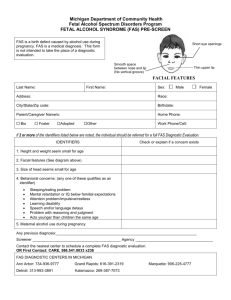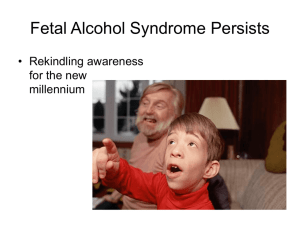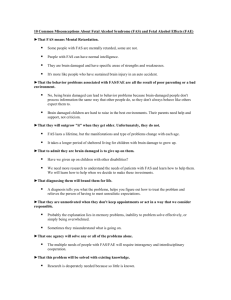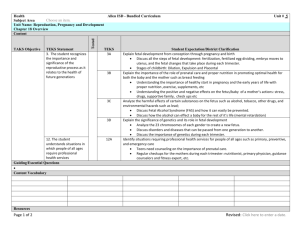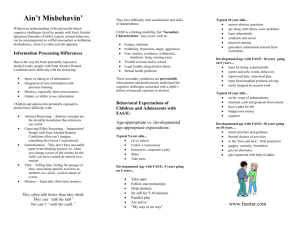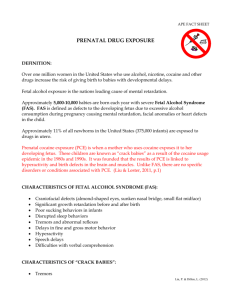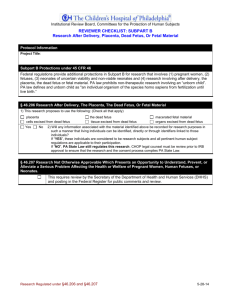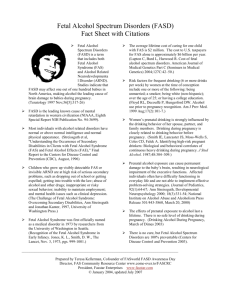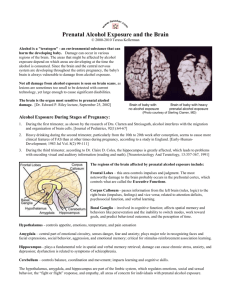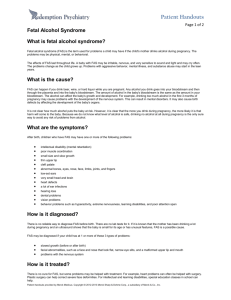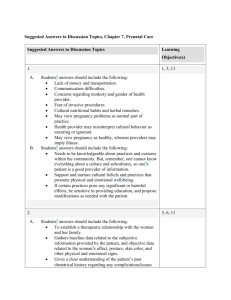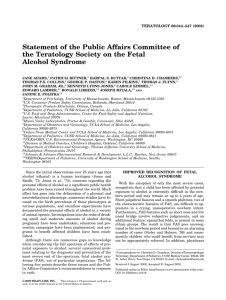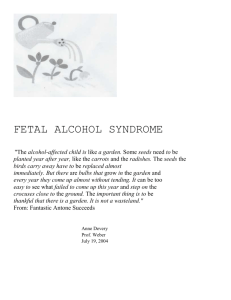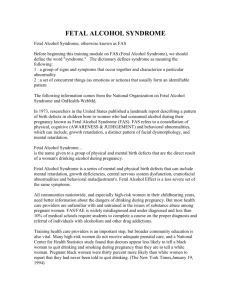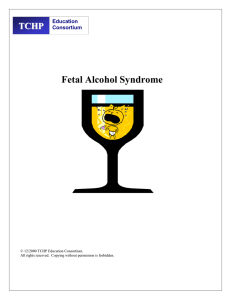Fetal Alcohol Syndrome Q and A - Emory Psychiatry
advertisement
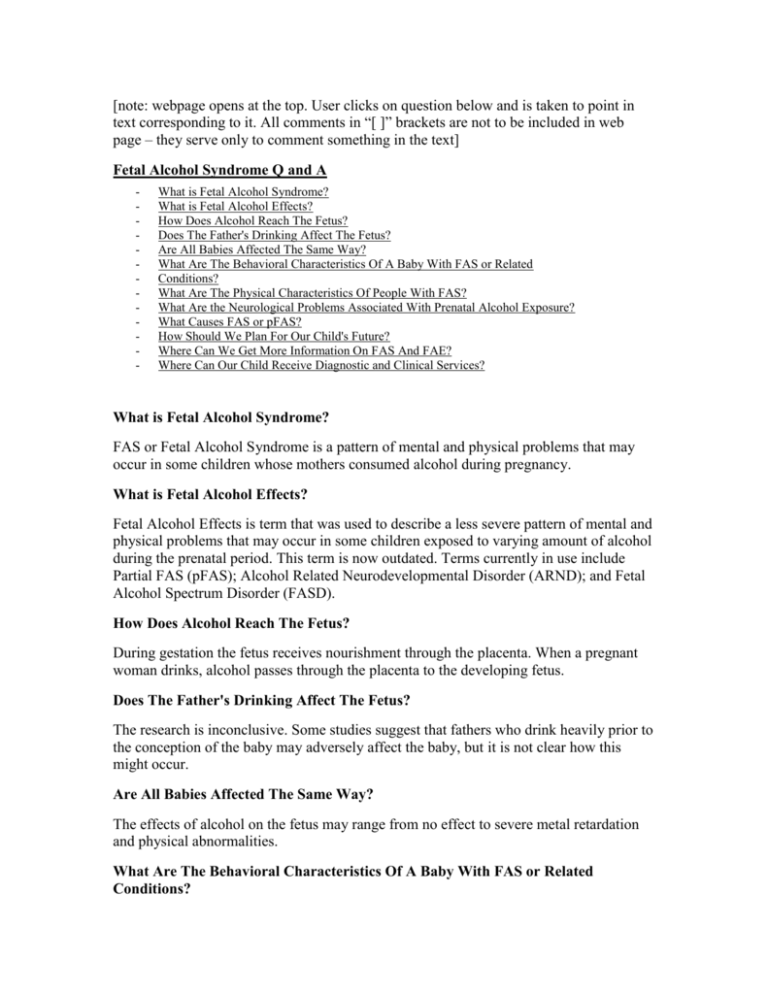
[note: webpage opens at the top. User clicks on question below and is taken to point in text corresponding to it. All comments in “[ ]” brackets are not to be included in web page – they serve only to comment something in the text] Fetal Alcohol Syndrome Q and A - What is Fetal Alcohol Syndrome? What is Fetal Alcohol Effects? How Does Alcohol Reach The Fetus? Does The Father's Drinking Affect The Fetus? Are All Babies Affected The Same Way? What Are The Behavioral Characteristics Of A Baby With FAS or Related Conditions? What Are The Physical Characteristics Of People With FAS? What Are the Neurological Problems Associated With Prenatal Alcohol Exposure? What Causes FAS or pFAS? How Should We Plan For Our Child's Future? Where Can We Get More Information On FAS And FAE? Where Can Our Child Receive Diagnostic and Clinical Services? What is Fetal Alcohol Syndrome? FAS or Fetal Alcohol Syndrome is a pattern of mental and physical problems that may occur in some children whose mothers consumed alcohol during pregnancy. What is Fetal Alcohol Effects? Fetal Alcohol Effects is term that was used to describe a less severe pattern of mental and physical problems that may occur in some children exposed to varying amount of alcohol during the prenatal period. This term is now outdated. Terms currently in use include Partial FAS (pFAS); Alcohol Related Neurodevelopmental Disorder (ARND); and Fetal Alcohol Spectrum Disorder (FASD). How Does Alcohol Reach The Fetus? During gestation the fetus receives nourishment through the placenta. When a pregnant woman drinks, alcohol passes through the placenta to the developing fetus. Does The Father's Drinking Affect The Fetus? The research is inconclusive. Some studies suggest that fathers who drink heavily prior to the conception of the baby may adversely affect the baby, but it is not clear how this might occur. Are All Babies Affected The Same Way? The effects of alcohol on the fetus may range from no effect to severe metal retardation and physical abnormalities. What Are The Behavioral Characteristics Of A Baby With FAS or Related Conditions? Infants may initially be irritable, jittery, difficult to feed, and hyperactive. They may have difficulty with state control [link to glossary] and display fidgety, restless behavior. Muscle tone and coordination may be impaired. What Are The Physical Characteristics Of People With FAS? Children born with FAS may have facial abnormalities such as small eye openings, drooping eye lids, a thin upper lip, a wide nose bridge, and an absent or flat groove between the nose and the upper lip. Newborns whose mothers continued to drink during pregnancy are smaller than average in height, weight, and head circumference. Heart and skeletal abnormalities may also be present. What Are the Neurological Problems Associated With Prenatal Alcohol Exposure? The absorption of alcohol through the placenta may damage the fetus's developing central nervous system and may result in mental retardation, developmental delays, and learning disabilities. What Causes FAS or pFAS? FAS and FAE are caused by repeated exposure to alcohol during the prenatal period. Maternal alcohol use during any stage of pregnancy may cause damage to the fetus. The more frequently alcohol is used the higher the risk to the child. Binge drinking is another factor that increases the risk of birth defects. How Should We Plan For Our Child's Future? Many children affected by fetal alcohol syndrome or related conditions can benefit from special education training. Where Can We Get More Information On FAS And FAE? The Maternal Substance Abuse and Child Development Study is under the direction of Claire D. Coles Ph.D., with the Department of Psychiatry and Behavioral Science, Emory University School of Medicine. For more information, please contact: Claire D. Coles: ccoles@emory.edu Karen K. Howell: khowell@emory.edu Where Can Our Child Receive Diagnostic and Clinical Services? FAS Clinic Marcus Institute 1920 Briarcliff Road NE Atalnta, GA 30324 (404) 419-4250
